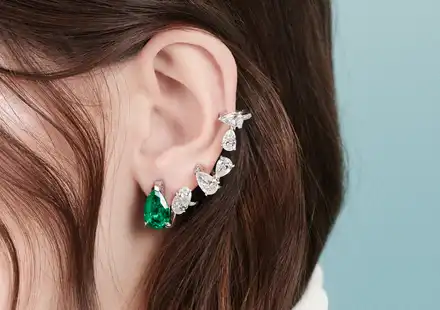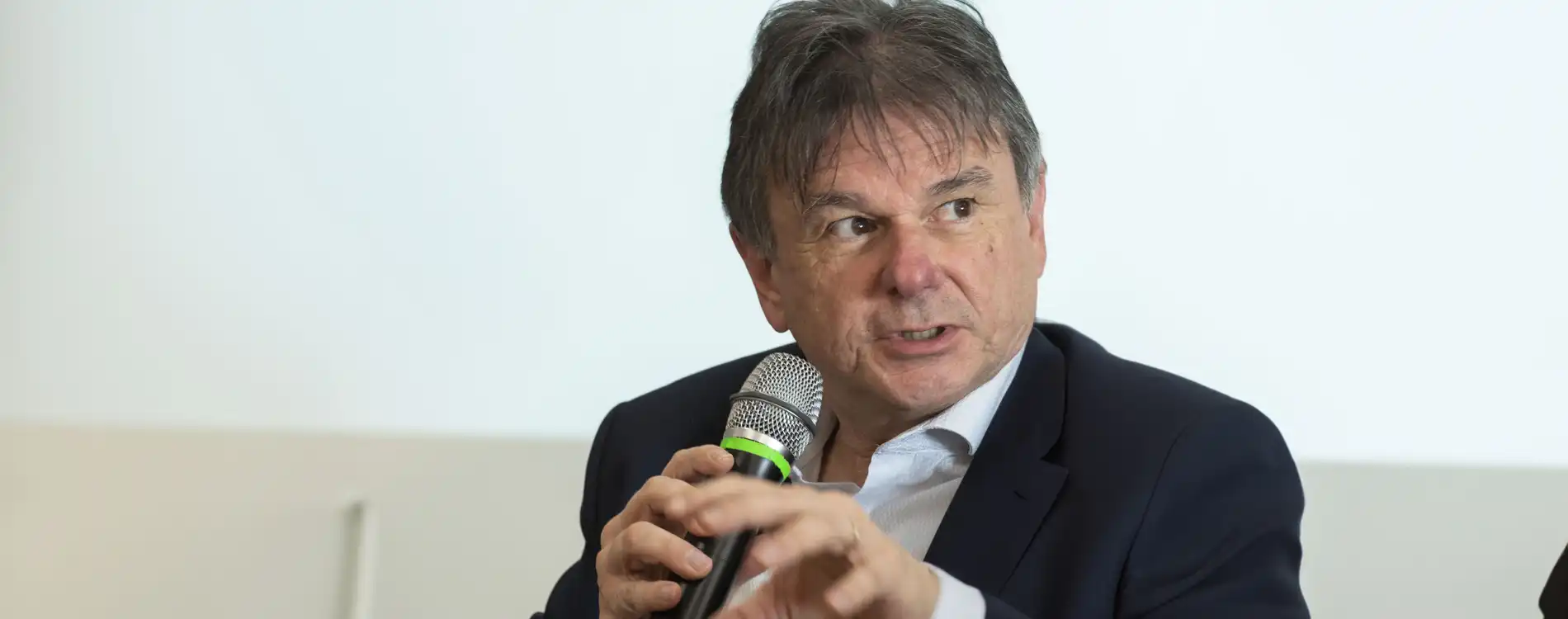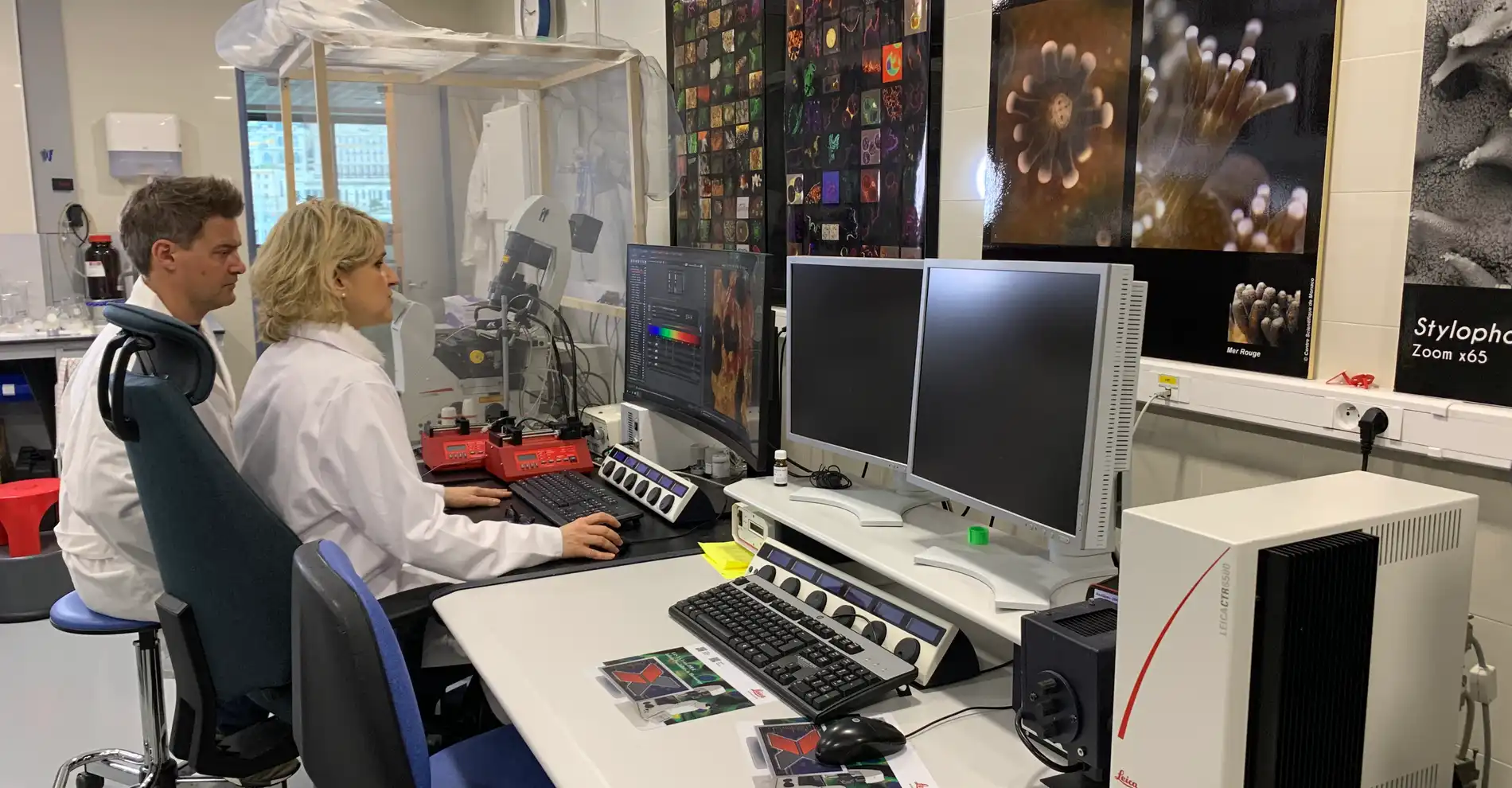Updated on October 19, 2023
This university professor and marine biology researcher talks to us about the Centre Scientifique de Monaco, where he contributes to the study and protection of essential corals.
How was the Centre Scientifique de Monaco established and what are its speciality fields?
Denis Allemand : The CSM was founded by Prince Rainier III in the 1960s, which was an important period. The Atomic Energy Commission had planned to dump radioactive waste at sea, off the coast of Monaco and Corsica. Like Prince Albert II today, the sovereign did not want to make a decision without consulting scientists first, and so he created a special commission, which later became the CSM. I arrived in 1986 and at that time we were developing marine biology research by studying red coral. We then began including environments such as coral reefs, deep corals and temperate corals. Since 2010, we have also opened two more key research departments: polar biology, in which our work is concentrated mostly on penguins, and then medical biology. We have actually become a bit like the CNRS but on a smaller scale.
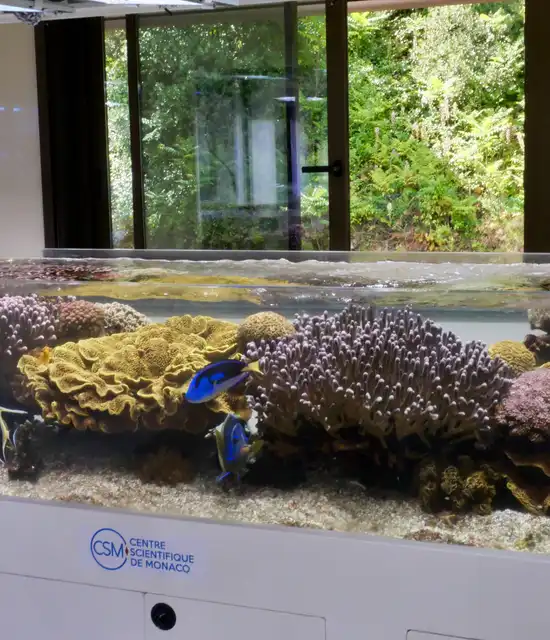
Can you tell us about corals, which are the focus of your work?
Denis Allemand : The CSM was a leading pioneer in coral physiology, and we now understand just how important corals are. In its three most recent reports, the IPCC has predicted that if the temperature increases by more than 2 degrees there will be no more coral reefs left by 2100. Although they only account for 0.1 to 0.2% of the surface in our seas and oceans, they are nevertheless home to 30% of all the organisms that live there. The coral animal lives in symbiosis with microalgae known as zooxanthellae, which transfer the energy needed not only to keep the coral functioning properly but also for the entire coral ecosystem. We carry out fundamental research at the CSM, and we are home to the world’s oldest collection of living corals under controlled conditions. This allows us to study their responses to environmental stresses, identify those responsible for damaging the reef and look for solutions. We also run initiatives on the ground: we have established caves and red coral colonies in Monaco. Since 2019, we have been working with Chanel, which has created a research unit on the biology of precious corals. We also help restore damaged environments. We know that 30% of the world’s corals have already disappeared, and we are currently developing an experiment near the floating dike in Monaco to study the best strategy to go about reimplanting red coral.
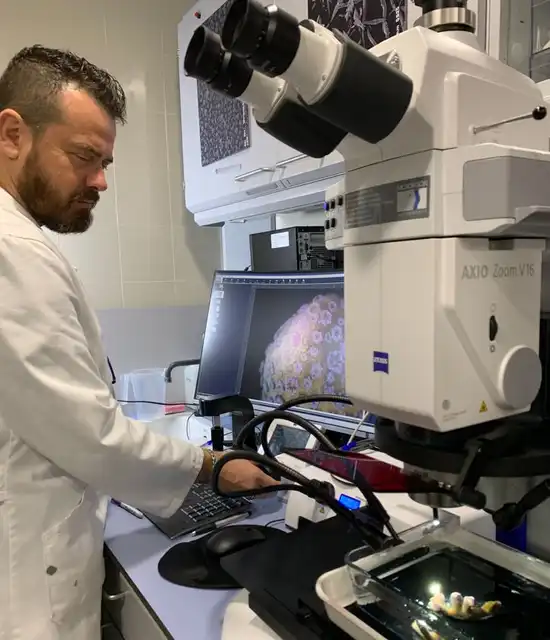
How do you make connections between the study of coral and medical biology?
We already have the advantage that medical biology research is undertaken in the same place as research into coral and polar biology. Regarding cancer research, we are trying to understand how clumps of tumour cells that would normally disappear due to a lack of oxygen have found ways to adapt, which allows them to attract blood vessels. Corals can be of great help in this, because they have algae in their tissues which carry out photosynthesis, and therefore go through hyperoxygenation phases during the day and hypoxia at night. So we have a wonderful model for learning how cells adapt to these transitions, and it can give us ideas for treatments. In terms of cellular ageing, studying corals is also very informative, because the oldest types are over 3,000 years old! During our research on intestinal microbiota, we were also among the first to show that anemone and corals have a genome very similar to ours.
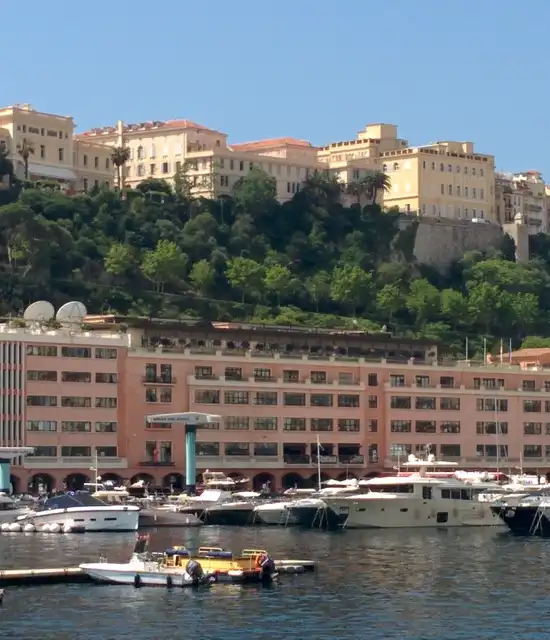
You might also like…
Top Marques car show: from classic cars to supercars, traditional know-how to high technology
As the Top Marques 2023 car show approaches, we hear about the careers of former F1 driver Thierry Boutsen and drone designer Erwan Grimaud, and get their perspectives on the show.
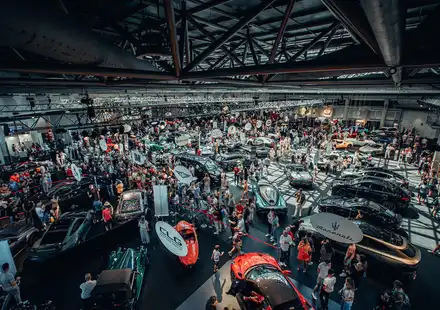
Interview with Liva Ramanandraibe, founder of IBELIV
IBELIV, an ethical brand created in Madagascar, is bringing its refined world to the Jardin Saint-James in collaboration with Monte-Carlo Société des Bains de Mer. Here, we meet the inspiring entrepreneur behind it all: Liva Ramanandraibe.
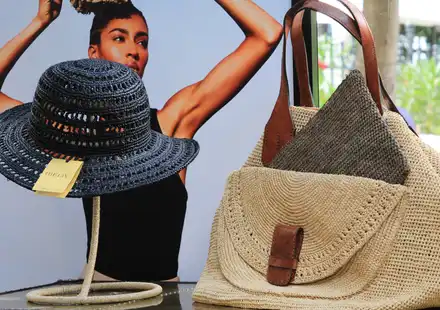
Repossi: high jewellery and avant-garde design. Meeting with Anne de Vergeron
Meet Anne de Vergeron, CEO of Repossi, for a creative and sparkling tour through the history and behind the scenes of this legendary jewellery house.
